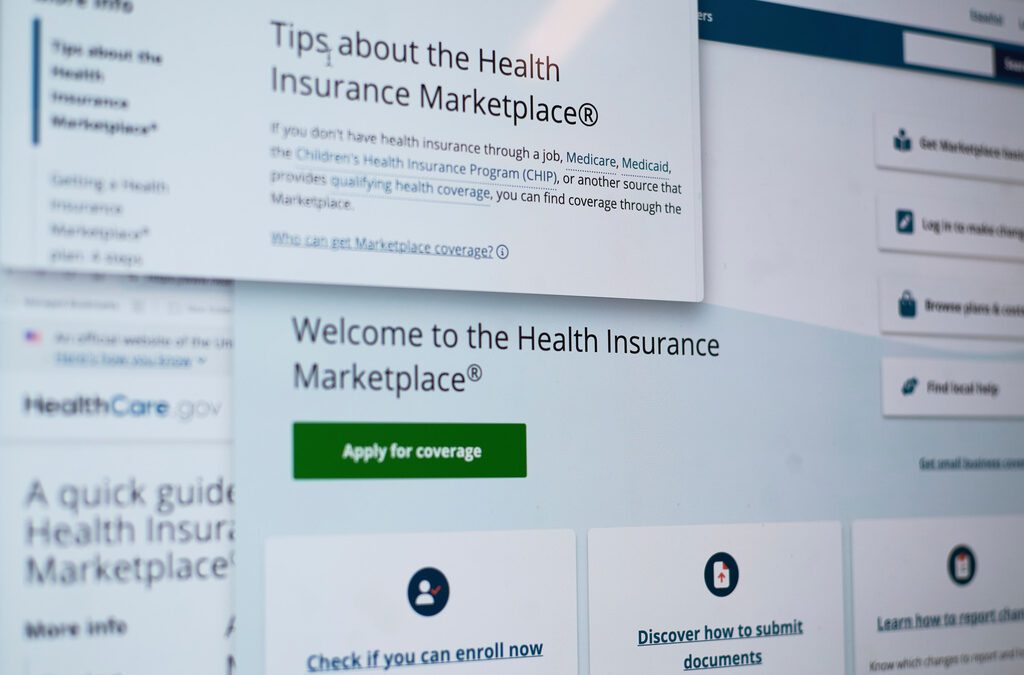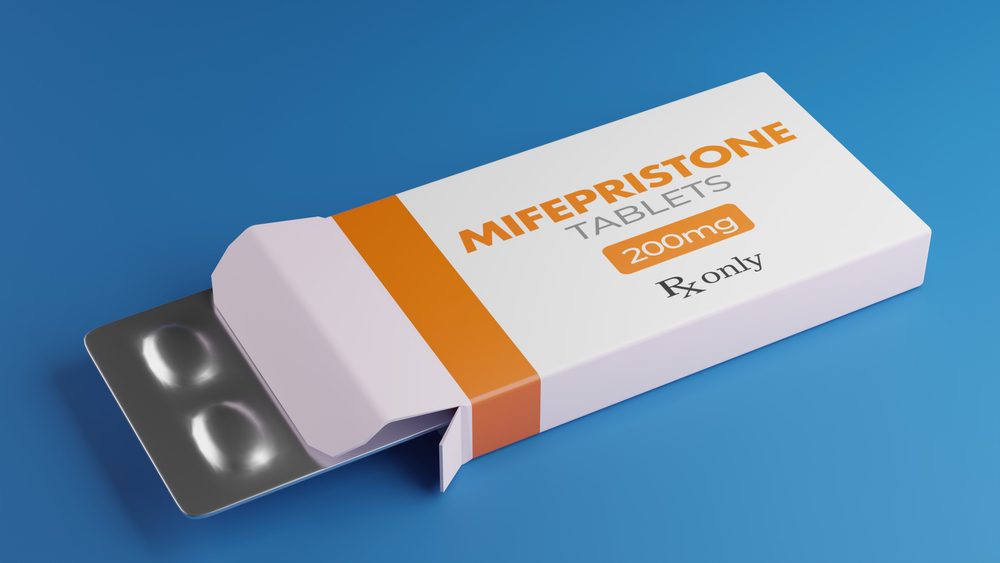
(designer491/Getty Images)
Medical debt’s unfair toll and the need for reform.
Born with a rare genetic blood disorder called MYH9, and later diagnosed with cervical cancer in 2019, and recently being diagnosed with a rare autoimmune condition, I’ve faced more than my fair share of medical challenges. These challenges, however, pale compared to the financial hurdles they created. My journey with medical debt has taught me a harsh truth about the intersection of healthcare and housing.
In 2019 alone, I paid over $11,000 out of pocket for surgery, doctor co-pays, and other medical expenses. This hefty sum was despite having health insurance. While I managed to pay off these debts, they left an indelible mark on my credit report. And due to recurring healthcare needs, I pay an estimated $10,000 out of pocket each year.
Recently, the duplex I had called home for four years was sold, and I was forced to start looking for a new place to live. With a credit score of over 750, a well-paying job, and an impeccable rental history, I felt confident that it would be easy for me to find a new place to live.
Despite my excellent credit score, several prospective landlords raised concerns about my past medical bills. One landlord even told me directly that he was concerned about the likelihood of me getting sick again and not being able to pay rent. I was considered a liability not because of my current financial behavior, but because of my health history.
In 2022, the Consumer Financial Protection Bureau (CFPB) found an estimated $88 billion in medical debt on American’s credit report. This debt often leads to lower credit scores, which can impede access to housing and employment. A study by the Kaiser Family Foundation (KFF) found that adults with medical debt face significant financial challenges, including being denied mortgages, apartments, and jobs due to the negative impact on their credit scores.
The injustice of this situation cannot be overstated. Medical debt arises from situations that are largely out of our control such as illnesses, accidents, and the high cost of healthcare. Yet, medical debt is treated similarly to consumer debt such as credit card debt or loans taken out for luxury items. Treating medical debt as equivalent to other types of debt in credit scoring fails to account for its involuntary nature and unfairly penalizes individuals.
Medical debt is not just a financial issue; it’s a matter of social justice. It disproportionately affects marginalized communities, exacerbating existing inequalities. People of color, low-income families, and those with chronic illnesses are particularly vulnerable. According to a 2022 report by the Kaiser Family Foundation, Black and Hispanic adults are more likely than white adults to report having past-due medical bills and being uninsured.
The policy implications are clear. We need comprehensive reform to protect individuals from the lasting impact of medical debt.
Capping the profit margins of hospitals, drug manufacturers, and other healthcare providers is essential to making healthcare more affordable and accessible. The profit margins on some medications are astonishingly high. A notable example is the EpiPen, a life-saving medication for severe allergic reactions. The cost of an EpiPen two-pack skyrocketed from around $100 in 2009 to over $600 in 2016, despite the fact that the actual manufacturing cost is estimated to be just a few dollars per pen. This massive markup exemplifies the excessive profits that drug manufacturers can make, often at the expense of patients who are left struggling with enormous medical bills. Setting limits on such profits would help reduce these exorbitant costs, ensuring that essential medications and treatments are accessible to all, regardless of an individual’s financial situation. This reform would not only alleviate the burden of medical debt but also promote a more equitable healthcare system where patient care is prioritized over profit.
Expanding access to Medicaid is also essential for improving healthcare accessibility and reducing medical debt for low-income families. Where I live, in Wisconsin, about 5.4% of Wisconsin’s population, or approximately 317,000 people, were uninsured in 2022, according to the Wisconsin Department of Health Services. This is largely due to the state’s decision not to expand BadgerCare (Wisconsin’s largest Medicaid program) under the Affordable Care Act. This lack of coverage has left many individuals vulnerable to financial ruin from unexpected medical expenses. Expanding BadgerCare would provide residents with much-needed access to affordable healthcare, significantly decreasing the likelihood of accruing insurmountable medical debt. As of 2024, 39 states and the District of Columbia have expanded Medicaid under the Affordable Care Act. This expansion has significantly increased access to healthcare for millions of low-income Americans, reducing the number of uninsured and alleviating the financial burden of medical expenses. Wisconsin remains one of the states that has not yet adopted this expansion.
I was fortunate to eventually find a place to live, but my ability to find housing should not depend on the whims of a landlord who may or may not decide my medical history is a risk. My experiences while apartment hunting left me deeply aware of the systemic flaws that allowed my medical history to become a barrier. It’s time for us to address these issues head-on, ensuring that medical debt does not continue to dictate who gets to have a home or a job.
As we look ahead, it’s vital that we harness our collective power at the voting booth to support local candidates dedicated to robust healthcare reform. We need leaders committed to the expansion of Medicaid in Wisconsin, broadening access to essential medical care and reducing the crippling effects of medical debt. By casting our votes for such candidates, we champion a future where healthcare is accessible to all, ensuring medical debt no longer dictates our opportunities for housing or employment.
On the federal level, it’s crucial to support initiatives and politicians that strengthen healthcare protections. Former President Trump made many statements promising to repeal the Affordable Care Act (ACA), and has sabotaged it by cutting subsidies and its enrollment period, among many other things. However, President Biden has not only protected the ACA, he has expanded healthcare subsidies that lower the costs for Americans. President Biden has also worked to cap healthcare costs, making sure Americans don’t have to pay outrageous prices for their medications. In 2022, President Biden signed into law the Inflation Reduction Act, which includes measures to cap out-of-pocket costs for prescription drugs for Medicare beneficiaries. The legislation allows Medicare to negotiate prices for certain high-cost drugs, starting with 10 drugs in 2026, and growing to 60 drugs by 2029, aiming to lower the overall cost of medications for millions of Americans.
Keep my story and the stories of millions of other Americans struggling with medical debt or high healthcare costs in mind when you head to the polls this November. Together, we can elect leaders who will fight for access to healthcare, fight against health insurance company’s greed, and ensure no one is financially ruined due to the cost of healthcare.

OPINION: Without the ACA Premium Tax Credit, my family’s health coverage is at risk
Like so many other working families, I don’t know what my family would do without the Affordable Care Act (ACA) premium tax credits. As these...

RFK Jr. ignores 100+ studies to push abortion pill ban—this is the mifepristone explainer you need
By Bonnie Fuller Apprehensive OB-GYNs across the country are alerting Americans that Health & Human Services Secretary Robert F. Kennedy Jr. may...

October is Breast Cancer Awareness Month. Here’s how you can help in Wisconsin
It's Breast Cancer Awareness Month. Here's how you can help fight for a cure throughout Wisconsin. October is globally recognized as Breast Cancer...

A new car vs. health insurance? Average family job-based coverage hits $27K
By Phil Galewitz, KFF Health News With the federal shutdown entering its fourth week, spurred by a stalemate over the cost of health insurance for...





